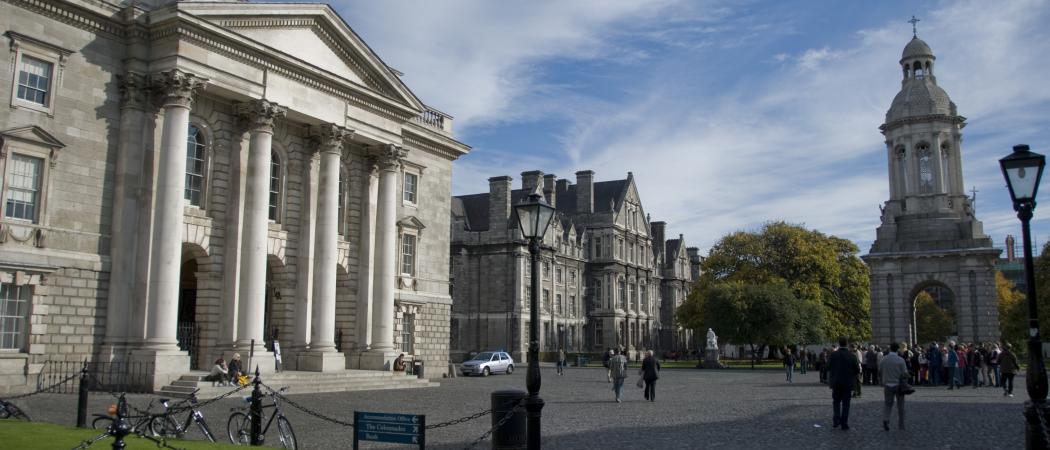
Parliament Square at Trinity College Dublin
Engineers and business experts from Trinity College Dublin are the technical leaders in a new €2.9m EU-backed project that will lighten the load on stressed water networks and reduce associated negative impacts on the environment. The project will also lessen operational costs for companies and bring down water bills for the public.
The water services industry is the fourth-most energy intensive sector in the EU, and is responsible for considerable contributions to climate change via CO2 emissions. Incorporating low-cost micro-hydropower technology at points of excess pressure in water networks will help reduce the depth of this unwanted footprint.
Significant potential currently exists to save energy, reduce costs and minimise environmental impacts in European water networks by improving the energy efficiency of water suppliers and users in the region. REDAWN will develop both the technology and policy to realise this potential, and generate understanding to help overcome any technological, institutional and social barriers to exploitation.
The project aims to develop an adequate institutional, social and technological environment to foster greater resource efficiency in water networks including irrigation, public water supply, waste and storm water, and process industry. It will adopt next-gen micro-hydropower energy recovery technology in built water networks in the Atlantic Area, including in Ireland, France, Spain, Portugal and the United Kingdom.
Associate Professor in Energy and the Environment in the School of Engineering at Trinity, Dr Aonghus McNabola, will be the technical lead of this multidisciplinary project, with the assistance of Professor in Operations Management in the Trinity Business School, Paul Coughlan, and Assistant Professor, John Gallagher, from the School of Engineering.
Dr McNabola said: “The water industry in Europe contributes significantly to energy consumption and CO2 emissions, which in turn impact negatively on the environment and the economy. European business competitiveness is impacted by the operational costs of water services, and so too are the general man and woman in the street, who pay for associated services.”
“The REDAWN project will make significant advances in improving energy efficiency in this sector and it will have positive environmental and economic impacts. The research team is very excited to have received this funding and is looking forward to working on this project in the coming years.”
Professor Paul Coughlan said: “The nature of the challenge requires an integrative response that crosses many boundaries and borders – discipline, practice, industry and national. REDAWN is set up to enable the engineering, environmental science and business researchers to interact directly with practitioners from European industry. Together, these partners are committed to bringing their established expertise to the table and open to learning with, through and from each other.”
Developed by Trinity in partnership with Action Renewables Ltd, University of Naples Federico II (Professor Armando Carravetta), IST Lisbon, Hidropower Ltd, FAEN, Feragua, the WATEF Network, SMPGA, and the University of Cordoba, REDAWN will run for three years with support from the EU’s Atlantic Area co-operation programme 2014-2020.





 A unique international forum for public research organisations and companies to connect their external engagement with strategic interests around their R&D system.
A unique international forum for public research organisations and companies to connect their external engagement with strategic interests around their R&D system.